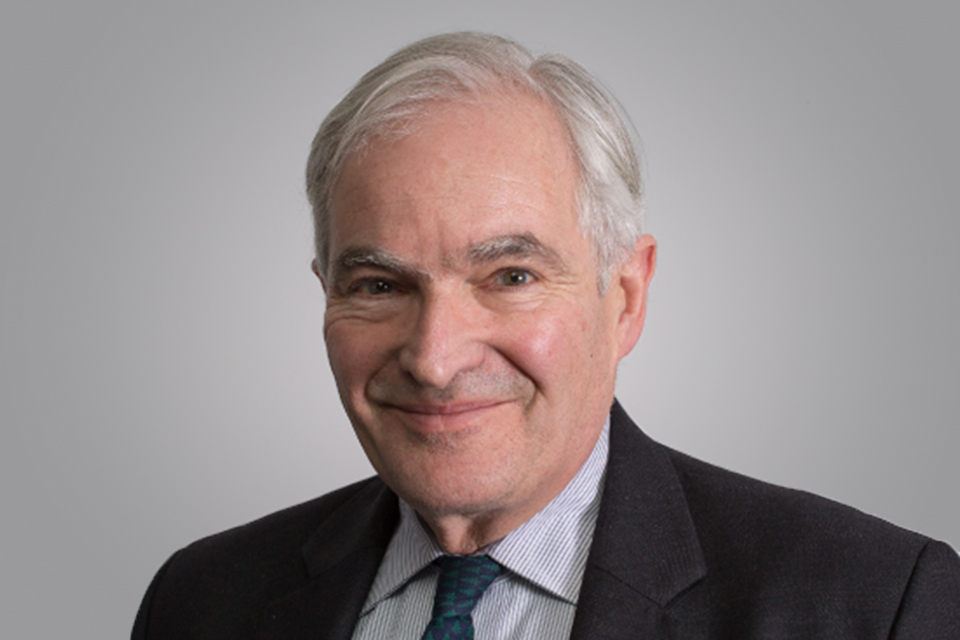Lord Henley’s speech at the RSPB Futurescapes launch
I'm delighted to be here to support the excellent work that is being showcased this afternoon.

I’m delighted to be here to support the excellent work that is being showcased this afternoon.
My message is simple:
The development of more landscape scale conservation initiatives has to be right. It is a direct response to the fragmentation of habitats and species. It reflects the inter-dependence of the constituent parts of the natural environment. And it will increase the resilience of our wildlife to climate change and the other pressures it faces. That’s why it gives me great pleasure to be with you today to help launch Futurescapes. A programme that is imaginative, ambitious and wide ranging.
A programme made all the more significant in this the International Year of Biodiversity - described as the world’s biggest conservation project of 2010. Futurescapes reflects our ambitions for protecting the natural environment.
Ambitions that really cannot be overstated in their importance for this Government. As we said in the coalition agreement, we are committed to protecting the environment, species and habitats for future generations. We believe that much more needs to be done to protect biodiversity, and we said specifically in the agreement that we will introduce measures to protect wildlife and promote green spaces and wildlife corridors in order to halt the loss of habitats and restore biodiversity.
We should not underestimate the work that needs to be done here. In the UK alone we’ve lost more than 100 species in the last one hundred years. Many that remain could well suffer a similar fate.
It’s vital therefore that we improve the way we value and protect our natural resources.
The Economics of Ecosystems and Biodiversity project led by Pavan Sukhdev is helping us understand these concepts and ideas by placing a value on the natural capital being lost around the world.
And here in the UK our National Ecosystem Assessment is underway analysing the UK’s natural environment in terms of the benefits it provides to society as a whole. I know many of you in the RSPB and other organisations represented here today are contributing to the Assessment - I’m grateful for your input and support - I understand the final report will be ready for publication in the Spring next year.
In addition to its intrinsic value, the natural environment also supports and sustains our economic activity.
Reflecting nature’s real value in socio-economic terms helps us improve the ways in which we both harness and protect the benefits it gives us. This is clearly borne out by the work you are doing in the RSPB through your reports - Naturally, at your service and Wellbeing through wildlife. These are both important pieces of work and I congratulate you on producing them.
The move towards landscape- scale conservation has arisen in response to the pressures of climate change; growing awareness of the importance of ecosystems and their value; and recognition that despite our efforts the current scale of delivery is insufficient to halt the loss of biodiversity.
The nature of the challenge underlines the need for co-operation in order to make the most of the limited resources available to us. One of the strengths of Futurescapes is its commitment to build partnerships with other environmental groups, local communities, the private sector and Government bodies. In doing this I hope that it will learn from the major contributions of others - including the Wildlife Trusts’ Living Landscapes initiative and Natural England’s integrated biodiversity delivery areas.
Within the EU we are already committed to a new target ‘to halt the loss of biodiversity and the degradation of ecosystem services in the EU by 2020, and restore them insofar as feasible’. And last week the European Environment Agency published the facts and figures which will provide the baseline for assessing progress in the EU between 2011 and 2020.
On the wider stage we are working hard in preparation for the Convention on Biological Diversity conference in Nagoya, Japan, in October which will bring together up to 193 member states to agree on a framework for tackling global biodiversity loss post-2010, as well as addressing a number of specific changes, such as ‘Climate Change and Biodiversity’ and the TEEB work that I have already referred to. We expect to play a prominent role in the discussions there.
Following on from Nagoya one of our key priorities will be to deliver a White Paper on the natural environment. The first of its kind for twenty years. We will be embracing the ecosystems approach and positioning the natural environment at the heart of the Government’s agenda.
We will be making an announcement on the White Paper in the coming weeks and consulting widely on it but I believe that landscape scale conservation is bound to be a key component.
I think we can all see the different strands of work coming together to protect our natural world. But we can also see the challenges that lie ahead. The challenge of producing safe, quality food for an increasing population. The challenge of meeting tomorrow’s energy needs. And the challenge of a rapidly changing climate.
I am optimistic though. The work around Futurescapes and the other initiatives I’ve mentioned show we are moving in the right direction. And together I believe we can overcome whatever tomorrow holds for us.
Thank you.